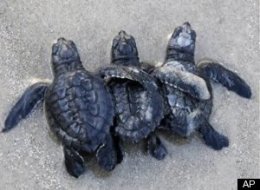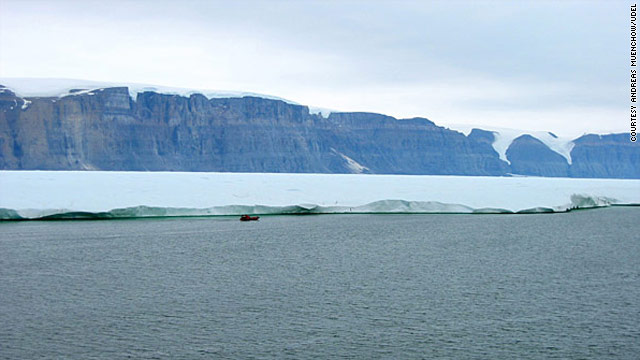 They said they considered the mountain their god, a living deity that provided them with everything they required to sustain their lives. They said they would fight to the death before seeing the pristine mountain destroyed. Remarkably, they won their battle.
They said they considered the mountain their god, a living deity that provided them with everything they required to sustain their lives. They said they would fight to the death before seeing the pristine mountain destroyed. Remarkably, they won their battle.
Last night, the tribal people of the Niyamgiri Hills in eastern India were celebrating after the authorities in Delhi ruled that a British-based company would not be permitted to mine there for bauxite.
The Indian tribe that took on a mining giant – and won
BP tells U.S. panel Halliburton should have warned of well hazard
 BP this week is taking public its strategy for spreading the blame for the April 20 explosion that killed 11 people on the Deepwater Horizon and led to the nation's worst oil spill.
BP this week is taking public its strategy for spreading the blame for the April 20 explosion that killed 11 people on the Deepwater Horizon and led to the nation's worst oil spill.
In a new twist in the case, BP has declared that Halliburton, which had warned that the cement job on the Macondo well might not function properly, should have stopped the operation outright. If Halliburton knew the cement process was unsafe, it had an obligation to refuse to proceed - and to do otherwise would be, BP said in a statement, "morally repugnant."
Major study proves oil plume that's not going away
 A 22-mile-long invisible mist of oil is meandering far below the surface of the Gulf of Mexico, where it will probably loiter for months or more, scientists reported Thursday in the first conclusive evidence of an underwater plume from the BP spill.
A 22-mile-long invisible mist of oil is meandering far below the surface of the Gulf of Mexico, where it will probably loiter for months or more, scientists reported Thursday in the first conclusive evidence of an underwater plume from the BP spill.
The most worrisome part is the slow pace at which the oil is breaking down in the cold, 40-degree water, making it a long-lasting but unseen threat to vulnerable marine life, experts said.
Ground Zero Mosque Goes Green
 In the midst of the drama around the mosque that’s being erected two blocks from Ground Zero, a few details have been left out that provide some clarity as to the purpose of this project. Specifically, the project will be the country’s first certified “green mosque,” in full compliance with stringent LEED (Leadership in Energy and Environmental Design) standards, which is why organizers have named the project Park51, rather than the oft-cited “Cordoba House.”
In the midst of the drama around the mosque that’s being erected two blocks from Ground Zero, a few details have been left out that provide some clarity as to the purpose of this project. Specifically, the project will be the country’s first certified “green mosque,” in full compliance with stringent LEED (Leadership in Energy and Environmental Design) standards, which is why organizers have named the project Park51, rather than the oft-cited “Cordoba House.”
GM crop escapes into the American wild
 The scientists behind the discovery say this highlights a lack of proper monitoring and control of GM crops in the United States.
The scientists behind the discovery say this highlights a lack of proper monitoring and control of GM crops in the United States.
US farmers have dramatically increased their use of GM crops since the plants were introduced in the early 1990s. Last year, nearly half the world's transgenic crops were grown in US soil — Brazil, the world's second heaviest user, grew just 16%. GM crops have broken free from cultivated land in several countries, including Canada, the United Kingdom and Japan, but they have not previously been found in uncultivated land in the United States.
Report: BP audit detailed rig's flaws before spill
 A newspaper says it has obtained an internal audit conducted by BP PLC on the Deepwater Horizon oil rig that details severe safety flaws months before the Gulf of Mexico spill. The Sunday Times said in its report that the audit details how the drilling rig, owned by contractor Transocean, did not fully comply with BP's standards.
A newspaper says it has obtained an internal audit conducted by BP PLC on the Deepwater Horizon oil rig that details severe safety flaws months before the Gulf of Mexico spill. The Sunday Times said in its report that the audit details how the drilling rig, owned by contractor Transocean, did not fully comply with BP's standards.
The report says that seven months ahead of the April explosion, auditors found 390 maintenance tasks that were more than a month overdue on the rig.
Massive ice island breaks off Greenland
 A piece of ice four times the size of Manhattan island has broken away from an ice shelf in Greenland, according to scientists in the U.S. The 260 square-kilometer (100 square miles) ice island separated from the Petermann Glacier in northern Greenland early on Thursday, researchers based at the University of Delaware said.
A piece of ice four times the size of Manhattan island has broken away from an ice shelf in Greenland, according to scientists in the U.S. The 260 square-kilometer (100 square miles) ice island separated from the Petermann Glacier in northern Greenland early on Thursday, researchers based at the University of Delaware said.
The ice island, which is about half the height of the Empire State Building, is the biggest piece of ice to break away from the Arctic icecap since 1962 and amounts to a quarter of the Petermann 70-kilometer floating ice shelf, according to research leader Andreas Muenchow.
Climate change and illegal logging could wipe out rainforest wildlife by 2100
 Most of the plants and animals found in rainforests today could die out by the end of the century because of climate change and illegal logging, according to a new study. The colourful wildlife found in tropical humid forests makes up more than half of the animal and plant species on Earth.
Most of the plants and animals found in rainforests today could die out by the end of the century because of climate change and illegal logging, according to a new study. The colourful wildlife found in tropical humid forests makes up more than half of the animal and plant species on Earth.
But the first study to look into the combined effect of both global warming and deforestation found most species are in danger of extinction. The study by the Carnegie Institution for Science in Washington predicted that by 2100 only 18 to 45 per cent of the plants and animals in tropical forests may exist as they are today.
Well spilled 4.9M barrels, new numbers reveal
 The blown-out well in the Gulf of Mexico gushed even more oil than the worst case scenario envisioned, a whopping total of 4.9 million barrels, or 205.8 million gallons, according to a new analysis by government scientists charged with estimating the flow rate.
The blown-out well in the Gulf of Mexico gushed even more oil than the worst case scenario envisioned, a whopping total of 4.9 million barrels, or 205.8 million gallons, according to a new analysis by government scientists charged with estimating the flow rate.
BP's Macondo well spewed 62,000 barrels of oil a day initially, and as the reservoir gradually depleted itself the flow eased to 53,000 barrels a day until the well was finally capped and sealed on July 15, according to scientists in the Flow Rate Technical Group, supervised by the U.S. Geological Survey and the U.S. Department of Energy.
More Articles...
Page 122 of 157

 Environmental News Archive
Environmental News Archive


































